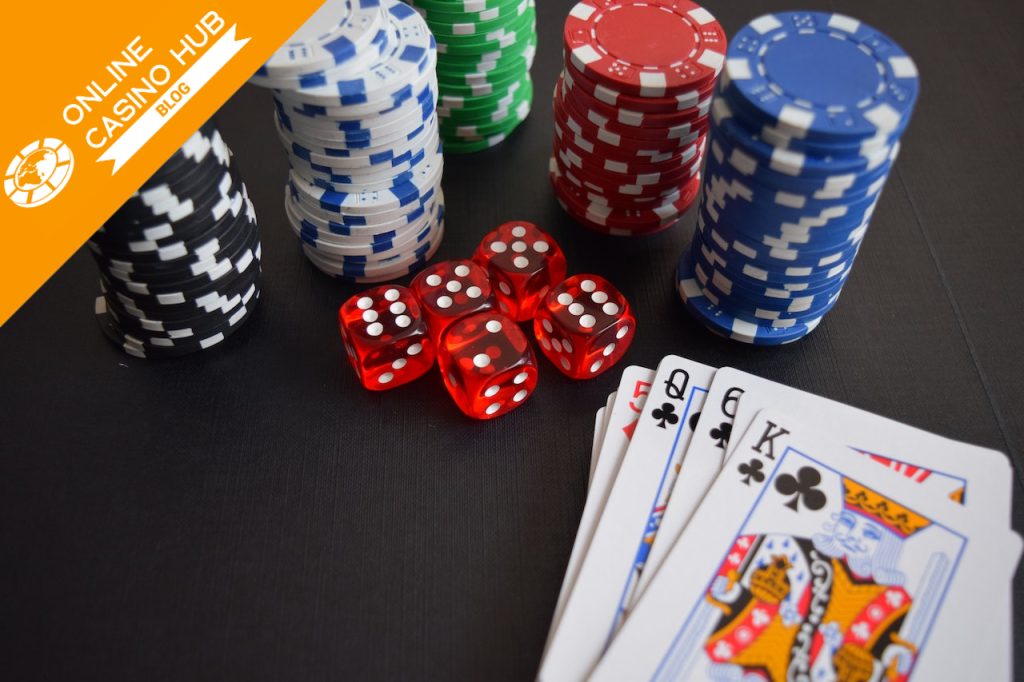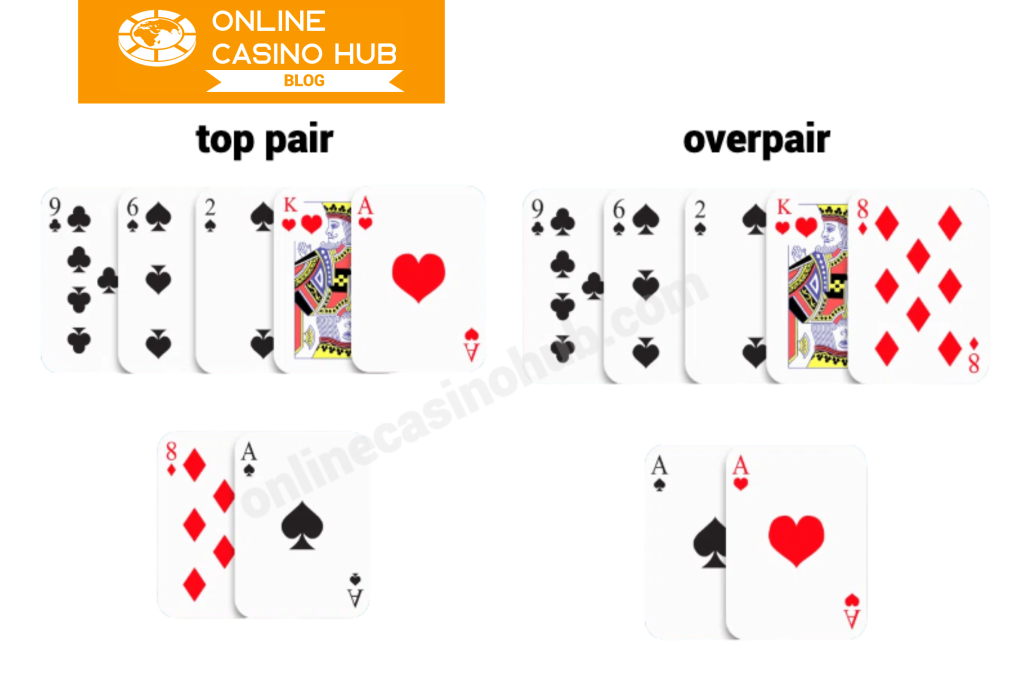
- The best casinos where you can apply poker strategy
- Tricks and basic poker strategy for beginners
- How to manage money in poker
- The pre-flop poker strategy
- The poker strategy after the flop
- The Importance of psychology in poker strategy
- How to become a successful “bluffer” poker strategy?
- How to interpret other players’ moves
- The most common types of poker players
This chapter will provide you with all the useful notions to carry on a successful poker game, from money management to the best poker strategy before and after the cards are revealed, also presenting a series of poker tricks and useful tips for beginners. To conclude, you will also discover the importance of the psychological aspect to this game, starting with the most easily predictable moves and ending with the differences between different types of players. And, at the end of the chapter, you can test your knowledge by taking the summary quiz!
The best casinos where you can apply poker strategy
- Curacao license
- Accepts payments in Bitcoins
- Offers games from 14 providers
- Many language versions and currencies available






- Mobile app available for iOS and Android
- Multiple payment methods supported
- Diverse range of games







- Curacao license
- Accepts payments in bitcoins
- Over 15 game providers








- You can get a bonus with a promo code in bitcoins
- The minimum deposit to receive the bonus is only 30 AUD
- Wager is relatively small - × 40








- Curacao license
- Accepts payments in Bitcoin
- It is possible to download the application
- Quick withdrawals







- Curacao license
- Fast payouts
- Attractive bonus offers
- Friendly customer service
















- Curacao license
- Versatile range of games
- Many game makers
- Great existing customer bonuses








- Curacao license
- Limitless deposits allowed
- Excellent promotional offers
- Outstanding loyalty program





- Curacao license
- Loyalty program is open to everyone
- Daily cashback
- Accepts multiple cryptocurrencies
- Over 5,000 games to choose from






- Curacao license
- A wide variety of games
- It supports both FIAT and cryptocurrency deposits and withdrawals
- VIP program







- Curacao license
- Welcome bonus on favorable conditions
- Large selection of game genres






- Curacao license
- The ability to make deposits and withdraw in crypto
- Welcome bonus of 7500 Australian dollars






Tricks and basic poker strategy for beginners
The ideal starting point for understanding how to play poker is definitely study: after you have a good understanding of the rules, method of assigning poker points and particularities of the variant you have chosen to participate in, it will definitely be easier to get great results and win at online or live poker. Observing the games of experienced players is therefore the fastest and most effective way to understand the dynamics of the game, as well as to gain experience. The second piece of advice for a beginner approaching poker is the ever-valid advice to moderate one’s money management to the best of one’s ability: don’t be afraid to test oneself, but also don’t launch into reckless betting to “figure out how to play poker.”
Here, then, are the key maneuvers that every beginner should take to improve his or her playing skills quickly, which will be explained in detail in the following paragraphs:
- Make small, balanced bets.
- Enter the game if you have cards with at least decent odds.
- Learning not to be misled by the attitudes of other players.
How to manage money in poker
Managing one’s money in poker, known in English as bankroll management, is a fundamental element of poker strategy as well as of the game itself. Knowing the game means knowing the best way to win at poker, and in order to participate, it is obviously necessary to stay in the current game, with a budget at one’s disposal that allows for satisfactory results. As in other casino games where there is a sum to be managed, for example roulette or blackjack casino, the best advice is never to invest more than half your money in chips on the first play, even if you think you have a very good hand. In this case, in fact, the psychological factor also comes into play, as will be better analyzed in later chapters, and even a “certain” victory risks turning into a sound defeat. The ideal is to proceed in small steps and adjust one’s bets, so as to contain any losses and, above all, to continue to optimize one’s plays: only in this way will it be possible to set an increasingly detailed pro poker strategy.

The pre-flop poker strategy
Among the phases of the game, the pre-flop phase corresponds to the moment when the first three cards have not yet been laid on the table: on how the cards are dealt in poker depends a large part of the game, and at this delicate moment the players to the left of the person who plays the role of the big blind (big blind) begin to make their bets, thus deciding whether or not to enter the game based on their cards. This is the phase that decides the fate of one’s play: one must carefully evaluate the cards in one’s possession, taking into account what the possible developments might be and carefully considering the possible maneuvers of the opponents. Another factor to consider in order to understand how to play poker when you are no longer on your first hand and have begun to know the playing style of the other players is the behavior of those present at the table: you can assess what to do by remembering the course of previous hands and the choices made by the various players when they were served with very good or very bad hands, in order to hypothesize the course of the current hand.
The poker strategy after the flop
Once the flop is discovered, each player has already made his or her choice:
- call: the player entered the game playing the amount of the big blind;
- fold: the player chose to pass the hand;
- raise: the player entered the game by raising at least twice the amount of the big blind.
At this point one may be faced with various scenarios: the first thing to do is to assess the situation at the table. It may happen, in fact, to be already in possession of what in the jargon is called a “made hand,” the best hand: double pair, three of a kind, straight and flush are all strong hands that if well played can lead to winning at poker in a satisfactory manner. On the other hand, “draws,” incomplete hands that could, however, improve poker scores with the presence of a useful card on the table in order to better complete one’s combinations, are considered in “development.” Given these two eventualities, it is possible to choose how to play although, in principle, some rules always apply:
- avoid being in marginal or unfavorable situations;
- playing actively is always better than not participating;
- managing the bankroll efficiently allows you to play better and longer.
The Importance of psychology in poker strategy
It has been mentioned in previous chapters, but no gaming enthusiast is not already aware of it: psychology plays a key role in poker, whether it is Texas Hold’em or the other variants. Psychology in this field refers to the series of more or less involuntary reactions, assumptions, and attitudes that lead one to act in one way rather than another during a game. When considering one’s hand, for example, it is essential to reason rationally: if one’s hand is low, one runs the risk of allowing oneself to be negatively influenced by one’s cards, while if one has a good hand, the danger is to play carelessly certain of one’s victory and then find oneself dealing with a situation quite different from the one imagined.
When thinking about other players, on the other hand, it is useful to assume that they, too, are engaged in simultaneously judging their own hand but also the attitudes of others, trying to decipher your actions to see what kind of player you are or at least what cards you have at your disposal. This is when one of the most common attitudes in poker comes into play: the famous “bluff,” which is to make others believe that you have certain cards or act in a certain way than what you really have at your disposal. It is not about lying through your teeth or misrepresenting yourself, but rather masking your emotional reactions as a function of your best poker strategy!
How to become a successful “bluffer” poker strategy?
The best way to carry on a bluff is to bet even if you have an inferior hand to those of others, so as to discourage other players, or the exact opposite. Bluffing falls into three main categories, which are fundamental to master and not to fear using in order to be a good bluffer:
- pure bluff: this is an aggressive maneuver, played even though you already know it will be unlikely to win, solely to discourage the other players;
- semibluff: occurs when you have some chance of winning, such as with a draw. Again, this is used to pretend to have a better hand;
- passive bluff: is the opposite of pure bluff, played with winning cards and poker scores. It is used to make other players believe that one’s cards are weak, so as to increase the value of the pot and collect a good amount when winning.
How to interpret other players’ moves
When you are familiar with the game and its dynamics, you can also focus on analyzing the moves of other players without losing concentration relative to your own hand. The playing attitude can be distinguished into two major trends:
- loose play: is a more “generous” style of play, in which the player bets often and stays in the game.
- tight play: is a more conservative approach than loose, players who adopt it tend to bet less and not enter the game unless they are certain of the potential outcome of the hand.
The most skilled bluffers will know how to simulate an advantageous (or disadvantageous!) hand in both eventualities, practicing what is referred to in English as “deception” and which indicates for all intents and purposes “deception” carried out by players to prevent others from detecting recurring patterns in their reactions, based on the hands they have.
The most common types of poker players
Not only online poker strategy and psychology: in addition to constantly improving one’s skills and knowledge, it is also good to learn to distinguish the playing style of other players, just as in any other game of different sports. Over the years, studies on this game and its fans have managed to delineate eight main categories of poker players: here are what they are, with their respective nomenclatures borrowed from the style of play adopted and their own names derived from English.
- loose aggressive player: stays in the game often but is unskilled, although he attempts several maneuvers;
- passive loose player: stays in the game but is passive and turns out little;
- tight aggressive player: plays expertly, does not uncover himself but can interpret his opponents’ play well;
- passive tight player: does not willingly stay in the game unless he has excellent cards;
- donk player: is an amateur, most likely a novice. You have to start somewhere to learn;
- maniac player: prefers an aggressive style of play, full of raises and bluffs;
- calling station player: always goes to see the bets, often not at all adept at playing and accumulating points;
- rock player: knows the rules well and can play dynamically and versatility, is the most complex type of player to beat.




















